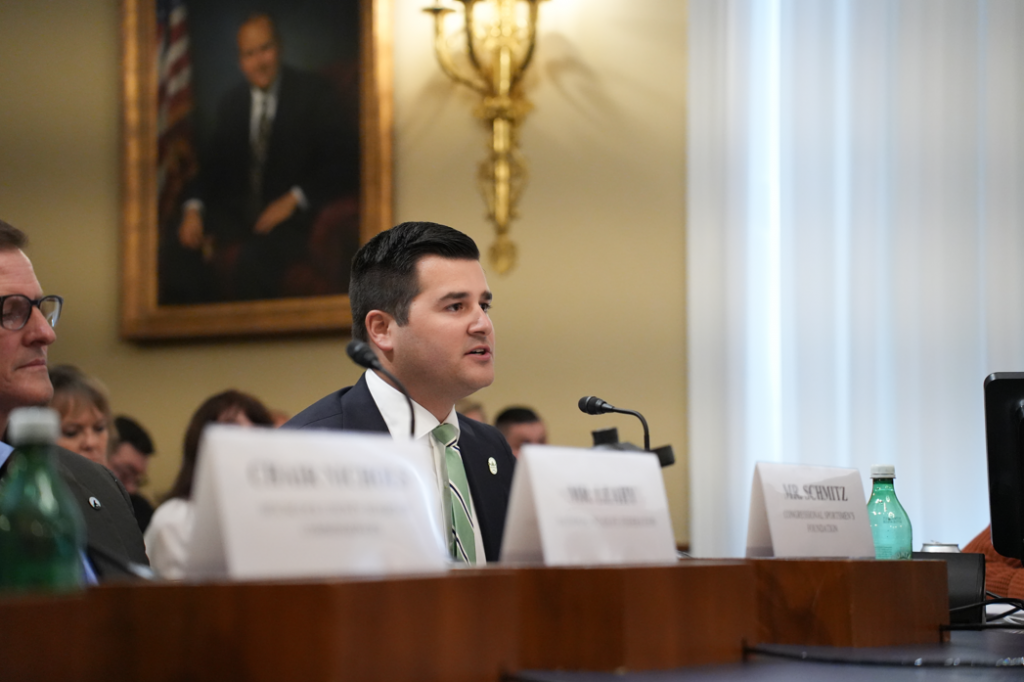| September 10, 2024 (Washington, D.C.) – Earlier today, Taylor Schmitz, Director of Federal Relations for the Congressional Sportsmen’s Foundation (CSF) testified before the House Natural Resources Subcommittee on Water, Wildlife, and Fisheries as the sole representative from the sporting-conservation community on three CSF-priority bills.
As the sole representative from the sporting-conservation community on all three bills, Schmitz testified in support of H.R. 6352, the Tax Stamp Revenue Transfer for Wildlife and Recreation Act; H.R. 8836, the Wildlife Movement Through Partnerships Act; and H.R. 8632, the Biodiversity Oversight Scaled-back and Fully Erased (BIOSAFE) Act.
H.R. 6352, the Tax Stamp Revenue Transfer for Wildlife and Recreation Act, led by Congressional Sportsmen’s Caucus (CSC) Member Rep. Blake Moore and CSC Vice Chair Rep. Jared Golden, will repurpose the $200 ATF Form-4 tax stamp money that is required to purchase a firearm suppressor, and send 85% ($170) of this money to the Pittman-Robertson Act to bolster state level conservation, hunter recruitment efforts, and to increase access opportunities for America’s sportsmen and women and the public at large. This legislation also requires that suppressor applications be approved within a 90-day timeline, unless the applicant is barred by law from purchasing a suppressor.
H.R. 8836, the Wildlife Movement Through Partnerships Act, led by CSC member Rep. Zinke and Rep. Beyer, seeks to codify the highly successful Secretarial Order 3362 that aimed to conserve big game migration corridors and winter range across 11 western states; however, this legislation broadens this scope across the entire country and all wildlife species that migrate or move as part of their annual cycle would be eligible for funding. Importantly, H.R. 8836 respects the rights of private landowners while providing these important stakeholders with voluntary options to expand the conservation resources at their disposal. CSF firmly believes that for conservation to work at scale, private landowners must be able to envision themselves in the program, and the best way to achieve that is through voluntary, non-regulatory, and locally driven approaches. This legislation also respects and upholds state and tribal wildlife management authority.
Lastly, H.R. 8632, the BIOSAFE Act led by CSC Member Rep. Grothman, would require the U.S. Fish and Wildlife Service (FWS) to withdrawal the proposed rule and policy updates titled “National Wildlife Refuge System; Biological Integrity, Diversity, and Environmental Health (BIDEH).
“I would like to thank the Subcommittee for the opportunity to testify on these important CSF priorities. Together, these bills will enhance conservation, bolster access for sportsmen and women, and ensure longstanding management practices on certain federal public lands,” said Schmitz. “We appreciate the interest by the House Natural Resources Committee on these bills and we look forward to working to advance these priorities in the future.”
CSF will continue its work to see that these bills pass Congress and ultimately become law. |


